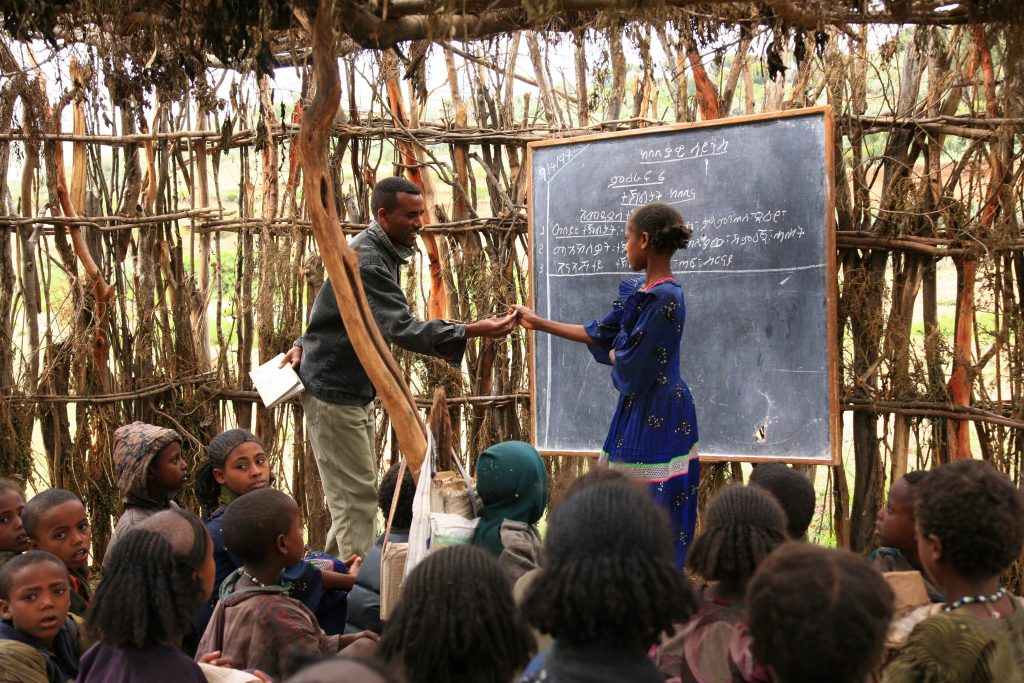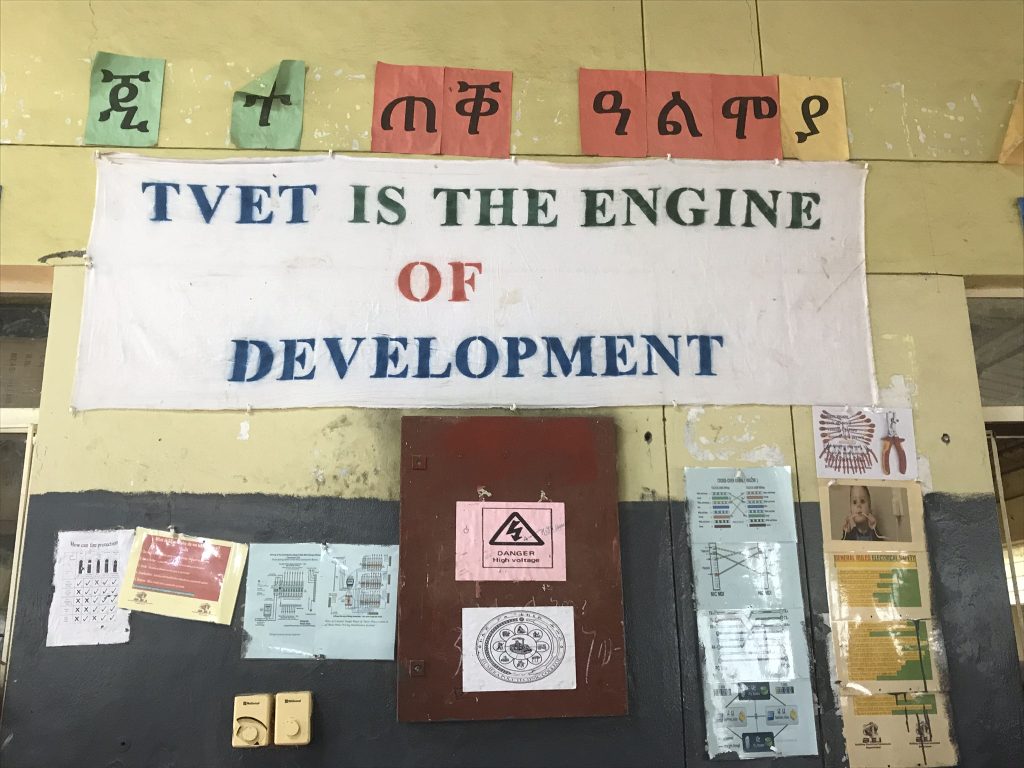Our initiatives
The education sector plays a crucial role to have a broad and inclusive socio-economic growth. In Ethiopia, the sector has passed through a series of successive and rolling Education Sector Development Programmes (ESDP I-V), which started in 1997 and which were supported also by Italy (through the Italian Agency for Development Cooperation), in order to achieve universal primary education and to undertake a coherent and balanced development of the education sector. Raising the school enrolment ratio and reducing gender disparity in access to education are among the major goals of the Ethiopian Government. Furthermore, the Government aims at improving the quality of education. This purpose has been supported by the General Education Quality Improvement Project (GEQIP), which is now running its third phase (Italy supported phases I and II through the Italian Agency for Development Cooperation). It aims at improving learning conditions in primary and secondary schools and strengthening institutions at different levels of educational administration.
During the past decades, Ethiopia has undertaken an impressive reform in the TVET sector, guided by the National TVET Strategy of 2008 and TVET Proclamation of 2016. The number of students is growing and policy makers and planners need to address various challenges to increase youth employment and employability. Currently, in medium and higher qualification segments, there is a lack of a well-trained and skilled workforce who meets the labour market needs of an economy characterised by increasing specialisation, mechanisation and internationalisation. The TVET sector plays a major role for the provision of demand-driven trainings and for the transformation of the existing economy. Italy, through the Italian Agency for Development Cooperation, is currently supporting the TVET sector with a focus on agro-processing, through the programme Improvement on Skills Development and Job Creation under TVET, and in the textile and leather sectors, through the programme Capacity building and job creation for youth and women in the textile sector in migration prone areas. Additional support to the sector is provided through projects funded by the Italian Agency for Development Cooperation and implemented by Italian NGOs in different regions.
Furthermore, an additional support to the TVET sector will be provided in the future as foreseen in the new Ethio-Italian Cooperation Framework and in line with the Sustainable Development Goals (SDGs) 1, 4 & 8, which recognize the importance of skills development and employment promotion to successfully address global challenges and enable people to reach their full potential and become productive members of society.

